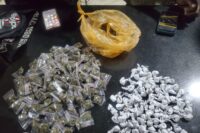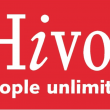HIVOS, an international non-governmental organisation, says Zambians can turn the growing problem of solid waste into a money-making venture.
Speaking during a workshop which brought together solid waste experts, business people, entrepreneurs among other stakeholders in Lusaka last week, HIVOS Southern Africa Enterprise development strategist Cordelia Kunaka said Zambia and particularly Lusaka had great potential for enterprise in solid waste.
Kunaka said recyclable solid waste industry was growing and Zambian entrepreneurs should not be left out.
“There is money in waste. There are people who are making money by collecting and selling waste. And the good thing is there is no entry barrier to those who want to start the business because all one needs is willingness,” Kunaka said.
“For example in Zimbabwe, we have a company that is recycling used plastic to make purvors. So these are the kind of ideas we need to bring to Zambia where we should start using waste to create products. For in stance paper can be used to make tissue. People should not burn waste because it they can earn from it. Waste collection is not only for poor people, it can be a source of income for anyone.”
Kunaka observed that the issue of waste was a growing problem in Lusaka that needed to immediate attention.
“But where there is a problem, there is a money making opportunity,” Kunaka observed.
She said the the solid waste industry provided and opportunity for many jobless youth and women to become entrepreneurs and earn money.
The three-day HIVOS-organised workshop which took place at Palmwood Lodge involved field tours to industry players ranging from waste collectors, aggregators and buyers.
And Nambula Kachumi the executive director of “WeCreate Zambia” a women’s entrepreneur resource centre said the solid waste industry was had high potential achieving economic diversification.
She said business was happening but the sector was not growing as fast as it should because many people saw it as a sector for government and non-governmental organisations.
“We think this is a good opportunity that can spread entrepreneurship. We have seen business grow but we need support. Women entrepreneurs participate in the lower end of the business as collectors and there is a lot of stigma around that and yet there is a lot of potential,” said Kachumi.
She said her organization was happy to partner with HIVOS to create awareness and provide training to women in taking up the opportunities in solid waste entrepreneurship.













One Response
Me and my friends we have a business plan on setting up a business/company of collecting garbage and selling to munafacturing companies